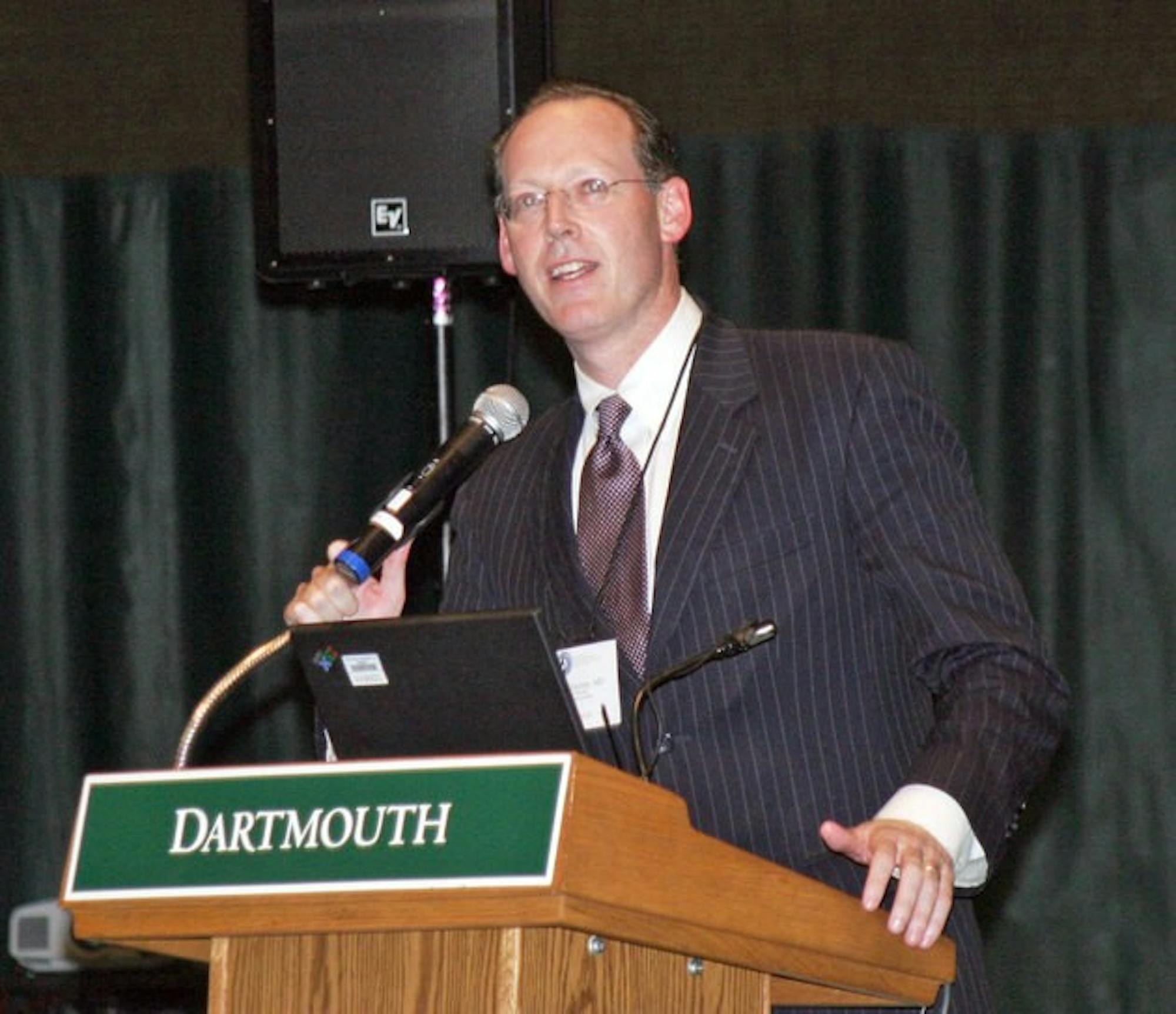The panel discussion marks the beginning of the fourth annual Dartmouth-sponsored Great Issues in Medicine and Global Health Symposium, which for 2007 will focus on local and global poverty.
The event was highlighted by the attendance of Farmer, a professor of medical anthropology at Harvard Medical School and the co-founder of Partners In Health, an international non-governmental organization dedicated to issues of global health inequality. Farmer was featured in Tracy Kidder's Pulitzer Prize winning "Mountains Beyond Mountains."
Farmer described the goals of Partners in Health as threefold, to "take care of sick people, strengthen and rebuild health systems and train local community health workers."
"Haiti's always been my greatest teacher," Farmer said, referring to the site of one of Partners in Health's first projects. "In 1983, a woman told me that everyday was a fight for wood, water and food. Today, her community faces a different set of struggles, which have arisen even as Partners in Health has worked on primary education, infrastructure and health care."
HIV/AIDS, however, has posed to be a major hurdle in developing countries, Farmer said.
"When I was finishing my infectious disease fellowship, there were a lot of AIDS patients in the [Boston] hospitals," Farmer said. "Now, we've discovered that with the use of retroviral drugs, AIDS can be a chronic, treatable illness, instead of a death sentence, and there aren't a lot of AIDS patients in U.S. hospitals. This didn't happen in Haiti, because we had to fight to get funding and support for AIDS-treatment projects."
Partners in Health, along with the Clinton Foundation, various national governments and other international organizations, has worked to lower the cost of HIV/AIDS treatment through an HIV equity initiative. The ifferent entities seek to lower the costs of drugs by collectively pressuring major pharmaceutical companies, Farmer said.
Global health efforts are further impeded, Farmer said, when global institutions and policy-makers do not allow the most efficient efforts to combat disease and poverty to be utilized. He alluded to a complex international attitude towards health care in developing countries, citing an instance in which international monetary organizations, hoping to increase private sector activity, enacted policies that resulted in the loss of 4,000 public sector nurses in Rwanda.
"I wonder what would happen if you went to a European country and said they were losing most of their nurses," Farmer said.
According to Butterly, 10 million children die each year of preventable diseases. This is compounded by the fact that 20 percent of the world's population does not have access to adequate drinking water and 40 percent does not have access to adequate sanitation facilities.
Farmer and Butterly did not limit their comments to a discussion of international health. Both openly criticized the extent to which health care is not a priority in the United States.
"It embarrasses me that the U.S. government is prepared to lead a global war on terrorism, but not poverty, and don't you think there might be a connection between the two," Butterly said.




